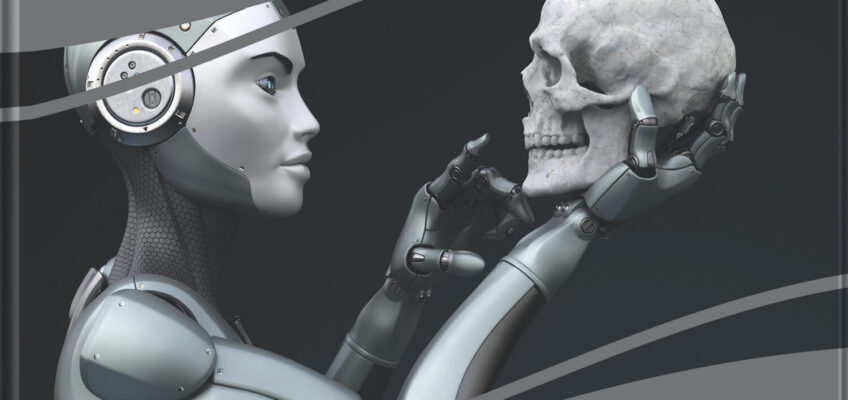My Multi-Touch ebook with poetry, photography, music, and voice, publicly available in the Apple Bookstore, is no longer available for sale. Instead, moving forward, I am offering syntaxicon as a free PDF version comprised of original text and image. Please access syntaxicon here for download today, and enjoy. Thank you.
Fine Art Transitions
Wanted to turn part of my Florida Room into a studio after stumbling on art I created in 1990, my Reactor piece, while managing the Radiation Department office at Three Mile Island. Having fun merging my photographer’s eye and passion for fractals into the world of abstract expressionist acrylic painting since July. Artist Wayne Chambers threw some art materials my way, and, Voila! Below are some cropped canvas sample selections, in rough chronological order of their creation, beginning with my first painting: Potter’s Field. NOTE: This post updates with new art creations added.

Potter’s Field, 2022, NFS
acrylic on canvas
16 in x 20 in

jazz Dance For Alto Sax, 2022
acrylic on canvas
16 in x 20 in

South Beach Simulacrum, 2022, NFS
acrylic and acrylic gouache on canvas
36 in x 48 in

Catskills Getaway, 2022
acrylic and acrylic gouache on canvas
16 in x 20 in

Koi Decoy, 2022
acrylic and acrylic gouache on canvas
16 in x 20 in

Fade To Glory, 2022
acrylic and acrylic gouache on canvas
18 in x 24 in

Tribe Sodom, 2022
acrylic and acrylic gouache on canvas
16 in x 20 in

Ancient Tributary, 2022
acrylic on canvas
16 in x 20 in

Poppy Love, 2022
acrylic on canvas
18 in x 24 in

Subterfuge, 2022
acrylic on canvas
16 in x 20 in

Ochre Blues, 2022
acrylic on canvas
16 in x 20 in

Origami Aviary, 2022
acrylic on canvas
16 in x 20 in

Captiva Kerfuffle, 2022
acrylic on canvas
36 in x 48 in

16 in x 20 in

Low Country Georgia, 2022
acrylic and acrylic gouache on canvas

Flamingo Flux at the Crack of Dawn, 2022, NFS
acrylic on canvas
Sometimes, your greatest inspiration will come through encouragement from people who believe in you; but, you cannot rely on that for your artistic growth, because when their deafening silence comes, and it will, at the end of the day, you must commit your talent and its direction to God and yourself, not to the varied, contrary opinions of others less invested than you. Nonetheless, it’s all still going strong here. Remember to rest, reflect, revise, repeat, and then rest.
As far as any argument or contention that oils are superior to acrylics because that’s what the Masters used, reality is, oils are all that the master painters had available in their day and age. If acrylics were available to them, many would have chosen them. Because of the many similarities between oils and acrylics, great painters in acrylics are likely to be great painters in oils, also.
Despite the paintings’ apparent lack of cohesion to the uneducated eye, these artists cultivated the interplay of skill and unplanned occurrences to determine the painting’s final outcome.
Comment on Abstract Expressionists at thoughtco.com
‘Sold’ a modified print of Potter’s Field on Day One. Here it is, owner-framed.

So, happy with this new direction. Stay tuned for more…
Oh, and here’s a digital copy of Reactor. Original work is believed to be lost.

Reactor, 1990
mixed media
Linkedin Nonsense
Rejoined Linkedin after a 10-year hiatus. Was going great til it insisted I upload a government ID for access. Have seen where others did and still were denied access. Hard pass. It’s over.
Great News
I am contracted with Cognella for 2026 publication of my Understanding Information Literacy: Strategies in Processing Everyday Information textbook, and 2027 publication of my Digital Media Profiteers: Provocateurs, Jesters, and Propagandists textbook.
B ∙ R ∙ A I ∙ N
I spend a fair amount of time with my B ∙ R ∙ A I ∙ N news portal, some of which is mirrored at Bluesky nowadays! Please visit and bookmark. Merci.
The Christian Lifestyle Paradox
In the 42 years of my life as a Christian, I have never heard a message preached from the pulpit on the dangers of the hypocritical lifestyle.
Yet pastors over the past few decades have very comfortably thrown stones at LGBTQ people as someone to love while the sin of the ‘lifestyle’ must be condemned. This is constant, and recurring, even heard this week from Joyce Meyer, who looked visibly baffled, as she put it, by the whole ‘gay’ thing.
After hearing her lecture, it’s understandable why her church members may not want to come to her for counsel on the topic. They likely just sit back and suck it up; after all, she claims to have ‘the anointing’ and no sensible Christian would want to take that on. Yet, in reality, all who believe have the anointing as far as teaching and learning go: “But the anointing that you received from him abides in you, and you have no need that anyone should teach you. But as his anointing teaches you about everything, and is true, and is no lie—just as it has taught you, abide in him…” 1 John 2:27.
Some of this negligence may be understandable, as Meyer no doubt has her hands full with sinners of divorce among her followers. They’re likely holding onto Jesus’ comments in Mark 10 looking for partner infidelity as a way out, and likely being taught that is a valid reason, but that’s not what Jesus says. His contention is that if one divorces other than for fornication or sexual impropriety, it causes the individual to be available for porneia, or sexual impropriety, when partner sexual impropriety has already occurred. It’s not permission. He brings in Moses to verify that divorce was permitted because of their hardened hearts. But God never changed: “For I hate divorce…” Malachi 2:16a. Of course forgiveness is available, as with any sin, but rushing into another marriage is rather presumptuous.
So what’s going on with her bafflement on the ‘gay’ thing?
People have been the same across the centuries, there is nothing new about human nature under the sun. What did Jesus say about the ‘gay lifestyle’ while he was here?
* crickets *
Apart from Jesus telling people caught up in sexual intercourse outside of a marriage bond to stop doing so, the closest we can get to Jesus addressing ‘homosexuality’ is the emasculating tribal ritual of Sodom that its leaders put upon visitors to the Godforsaken place. Oddly enough, Jesus claims that Sodom would be justified compared to those who reject the kingdom of God and will suffer greater judgment (Luke 10:12). This is astonishing. Never preached.
So one argument may be that gay people were not an issue in the time of Jesus, culturally. Which is absurd. Jesus had 12 men he called to follow him and the idea that they were all straight in their sexual orientation is kinda pie in the sky. John, for one, highly questionable. Yet that seems to be the preferred status for people in rapt denial.
Back to lifestyle. Jesus had a lot to say about one lifestyle that he witnessed that was so disgusting to him that he condemned it, page after page. It was a ‘hypocritical’ lifestyle adopted by religious leaders of the day. A wide assortment of scriptures testify to Jesus publicly calling out this abomination and his frustration with its adherents.
Okay, so, whatever happened to the ‘hypocritical lifestyle’ since Jesus was here and condemned it? Did it disappear when he did? No, it continued to flourish and grow, and we can witness it today in virtually every pulpit.
While it’s no mystery why pastors like Joyce Meyer don’t dedicate their time and energy to condemning the hypocritical lifestyle when it’s so much easier to get audience support on condemning LGBTQ, who is more likely to be committing this sin that Jesus railed about continually, and who are these hypocrites who contributed intimately to his [requisite] death, overall, his place on the cross? Religious leaders caught up in their hypocritical lifestyle.
Christianity Today published their fascinating article on pastors and porn a while back. Less than 1% of pastors would let their congregation know they are caught up in porn. That’s more than 99% of today’s ‘Christian’ spiritual leaders surveyed in the study living a hypocritical lifestyle. Yet they have the gaul to condemn others for their lifestyle, when they are consumed and debased by their own lusts, but in secret. And don’t think for a moment that these pastors caught up in porn aren’t ever looking at gay porn. Fat chance. Their clueless spouses all walking around, proud, pushing the kids in their strollers with their ice cream cones while at Doodlebug Park.
The Apostle Paul wasn’t silent on the matter. While Romans 1 condemns the reprobate lifestyle of the idolator, Romans 2 condemns the envious reprobate hypocrite pointing the finger at the idolator in Romans 1. Paul wraps up this duality of the human condition in Romans 3, where all have sinned and are found guilty before God, in need of his provided redemption through Jesus Christ.
But we can go back to Jesus again and the Prodigal in Luke 15, who lived a debauched lifestyle before coming to his senses. The story doesn’t end with him coming home and God falling onto his neck in unconditional love. The older brother, the hypocrite who did not do what his younger brother did, yet called him out in critical judgement, actually did what his younger brother had done: not in overt behavior, but in his jealous heart. And he didn’t own up to the hypocrisy in his lifestyle. Just like today’s pastors in the pulpit won’t confront their hypocritical lifestyles.
The next time a religious figure condemns gay people for their ‘lifestyle’ just look at them and ask yourself, do they have a hypocritical lifestyle problem? Chances are, you know the answer. But, whatever you do, don’t hate them.
Hate their sin.
Famously Yours…
I’m not entirely sure as to why I feel the need to post this publicly, though feel it may be cathartic somewhat privately. Regardless, I am posting in public for the fun of it. It’s a partial list of famous people that I have met over the years, in various situations, whether serving, talking, working, or just partying with them. It’s been a magical ride. FWIW, some great nightclubs that I’ve been to include Studio 54, Studio One, Circus Disco, clubs in Munich and Jerusalem, among others. I was a non-union actor and character model for a number of years. Good times!
John Adams. Composer.
Keith Barish. Producer.
John Berendt. Author.
Beau Bridges. Actor.
Tony Danza. Actor.
Richard Deacon. Actor.
Bucky Dent. Baseball Player, NY Yankees.
Divine. Actress.
Eileen Ford. Founder, Ford Models.
Rudolf “Rudi” Gernreich, Fashion Designer.
Nancy Honeytree. Musician.
Ron Huldai. Mayor, Tel Aviv.
Garrison Keillor. Author.
Valerie Landsburg. Actress.
Edith Massey. Actress.
Willie Nelson. Singer.
Twila Paris. Singer.
Lester Persky. Producer.
Suzanne Pleshette. Actress.
Robert Rauschenberg. Artist.
Craig Russell. Performer.
Mimi Sheraton. Food Critic, NY Times.
Edwin Starr. Singer.
Stephen Stucker. Actor.
Rip Torn. Actor.
Abe Vigoda. Actor.
Andy Warhol. Artist.
John Waters. Filmmaker.
LeRoy Zimmerman. Attorney General, Pennsylvania.
Church of the Angry Culture Warriors
Do not let the sun go down on your anger.
– Ephesians 4:28b
On February 26, 2023, I attended church.
The only one masked, the service was at a neighborhood Baptist church I had attended several years ago. A relatively humble structure, I was looking forward to basking that Sunday morning in the warm glow of the high yellow glass windows that lined the sanctuary. They were gone.
How close is the anger-hate connection? When Jesus overturned the moneychanger tables in the temple he was full of righteous indignation; a holy anger, if you will, anger at the sacrilege he hated to see take place there. Righteous anger and hatred of evil. They go together. When do they separate or go their own ways, or would that be never? What about the evil in anger?
Not being from the South, here I raise my voice, and gentile Georgians think it’s anger; but it’s not, it’s drama. Personally, I’m not prone to anger, but thinking back to when I last might have been angry, even mildly. It was about a month ago, waiting in a Greek restaurant. But I wasn’t angry, I was irate. I told the clerk that I no longer wanted the order, that I wanted my money back, and that I was irate. She did her best to placate things, and I thanked her calmly and left.
When I was a young man, I worked one brief season at Robinsons in Beverly Hills. I remember trying to calm down a hysterical woman returning something at the register. My manager came up to me and said, She’s irate, I’ll handle it. He then worked his guest service magic while I was left to ponder the higher level of interaction that was underway due to that single word: irate.
Of course, irate isn’t just angry, it’s very angry. As so, it calls for special measures. Ironically, irate people are upset that they have been driven to the point of ire. In other words, they may not have been angry in any sense when they walked in the door; quite conversely, I was very pleasant when I was in the restaurant. My favorite food, Mediterranean, a rather intellectual chat with a man who was likely a returned soldier as he knew Serbia well enough to comment on its cuisine, and an elderly man who chatted with me about why I had an SLR camera around my neck, he and his wife were curious. I was far from irate or even mildly angry. What happened?
There was no one ahead of me when I ordered. I was feeling good enough to tip the cashier over $3 for an order under $20. All she had to do was ring me up. Then the madness started.
A cougher came in. I was masked and rather sedentary. He was masked and all over the place. Coughing on everything and around everyone. Not a gentle cough, but a deep, throaty, I’m-carrying-something-and-it-won’t-let-go kind of cough. Incessant. He was sick. I tried standing off to one side, he took that as a challenge and weaseled his way around to me eventually. Meanwhile, no food. He ordered boxes of pastries, was tended to hand and foot, coughing and ordering, and being bagged and rung up. While I waited. And waited. Well over twenty minutes? Ordered when there was no one there. No word on it. Nothing. Invisible. That is, until irate.
I told the cashier I changed my mind. She had to call her boss to walk her through how to return a purchase. The cougher roamed and did his thing. But suddenly pleasing me became the main activity, if for no other reason than to get me out. I didn’t create a scene. Just emphatically told the cashier that I was irate, in need of instant resolution. After some spinning wheels and phone commands, it came. I left, vowed to never return, it was that awful an experience. And I won’t.
And yes, there was hate. I didn’t hate the cashier or the cooks who bungled the order. I wish I could say that I only hated the dread experience. But that would be lying. I hated the cougher. I hated the power he had over the situation that turned my pleasant afternoon into a nightmare. I hated the insolence he had to move about freely, masked, as if the world would just have to endure. I hated his sneakiness, his way of ensuring he connected with everyone despising him. Because he knew what he was doing. He was stirring a pot. Pushing all the buttons. However one might phrase it, he was being evil. Deliberately. Possessively. I hated him. His very being.
Was I hating evil? Not that it ever came to mind. It isn’t even until now as I write these passages that I have given thought to hating someone. I’m a lover, not a hater. Yet, there I was, hating the loss of a tasty meal I had my hopes on, all the wasted time I had spent there waiting to no avail, and that I had been driven to ire. It was wrong for me to hate someone because they provoked me to anger. God wants to show me that they are not the problem, I am, despite their behavior. He died for that cougher. I’m to strive to love him in spite of his rebellious nature.
I don’t take lightly to anger creeping into my life. It comes, as it must to us all. But, being of Irish and Italian descent, I have had to work in my life to ensure anger takes its rightful place, that being not over me. It has worked, with the grace of God. It seems, once you recognize it, and the Word of God that says to keep it at bay, obedience leads to habit, which leads to lifestyle. Nonetheless, there is the root of it. I hated him for making me irate, causing me to hate myself for letting anger creep in the way it did and causing me to adjust my behavior. Yet, staying calm and composed to protect myself. I was able to walk away from my anger moment. What about perpetual anger?
The pastor is a young man, quite a pleasure to be around, bright and erudite. He wants to do the right thing. He plays the drums for the worship team, then gives a sermon. His style is conversational, open, friendly, but firm. The congregation lets out a subdued, occasional amen or two here or there over the course of at least an hour. There are less than 40 people spread throughout. He gets an amen out of me when he makes a reference to contemporary idolatries. But there’s one pivotal moment in his discourse that jumped out at me that afternoon.
Not leaning political, or bashing any specific group, somewhere in the middle of the sermon, the pastor makes a definitive reinforcing statement connected to the need to sustain, for winning a culture war. Then, and only then, a brief series of loud connected grunts and groans and amens. None before that moment, none thereafter. I wondered what had happened at that moment. And then I realized.
The message fed the church’s anger. Finally. It was the Fox News moment they were all paying for. It was why they were in church, in this particular church. They didn’t need it all the time. They just needed that one swift Sunday kick at The Other to reassure themselves that their anger is justified. Hey, it’s fed by the pastor. And all Hell break loose if these warriors weren’t going to go back to their televisions thankful for the angry opportunity to worship a God of culture wars on Sunday. Despite the fact that Jesus embraced his God-given culture, and expects us to do the same.
Society Is Not Free…
…And Will Never Again Be Free
We’ve lost a core human freedom: the right to freely move about in society. While it may seem like we are still quite able to go where we wish without disruption, due to mass surveillance, including what is becoming ubiquitous facial recognition, we have lost the freedom to move about without trepidation. For those persons who would argue that as long as you aren’t doing anything wrong, you have nothing to worry about, the reality is that now one must be aware of one’s behavior at all times in a way that may call for modification as a means of protection. That means law-abiding citizens are no longer free to move about in society in unabashed freedom.
This behavior modification option attached to loss of the crucial freedom to move about in society without hindrance stretches into our rights to other freedoms afforded democracies. We must consider our online options, our speech, our presence in society in new ways that have slowly become customary in some ways without revealing their awful, tentacled roots. The term ‘we’ does not apply to the tech and government elites who are behind software and hardware surveillance, of course. They are, in a sense, immune, watching each other’s backs while they snatch and record everyone else’s activities. Who would call their inconsistencies and hypocrisies into question, when it is they themselves who control the primary databases?
Some would argue that there is still time to save us from this Orwellian nightmare. But that’s simply not true. Even the most astute politician is running so far behind a technological advancement posited in permanence by largely unregulated corporations and rogue entities that there is simply no way to catch up. By the time policy and regulation come into play, it can only be done to some benefit of the entity already deploying the sophisticated invasive technologies. One can argue that the latest ruling in Illinois on biometrics and privacy is a step forward, and it is, of course. But, apart from still being too little too late, it is Illinois, not the United States. And it is a singular case, regardless of how much of its consequences spill out into the legal sphere. It can’t, and won’t, decide everything related to biometrics abuse, the vast number of instances we would likely not even know about because exposing and fighting them in courts is so daunting.
Gone are the days when we could go online without concern over what we do there. We’re not talking illegality, but simple innocent clicks and transactions that are recorded and dumped serendipitously into the permanent archive. Actions that for average netizens cannot be undone. While Europe has done what is can to date with its Right To Be Forgotten, it is not a perfect schematic, and is subject to so much discretionary response that it can be hailed only as a mere attempt. Of course, that is better than nothing in some ways. It shines a light on a critical issue.
And that’s our problem. This brief essay shines a brief light. It does nothing more. While it may spark response, most likely it is in discourse alone, not effectual policy and regulation. Even were it to be believed, and in the hands of those persons capable of interfering for the benefit of society moving forward, its limits in the vast sea of never-ending data aren’t going to change anything. We’ve lost our freedom to navigate through life without circumspect, and at times paranoid, steps we must take to protect ourselves. And this lost freedom is an essence of our very being.






